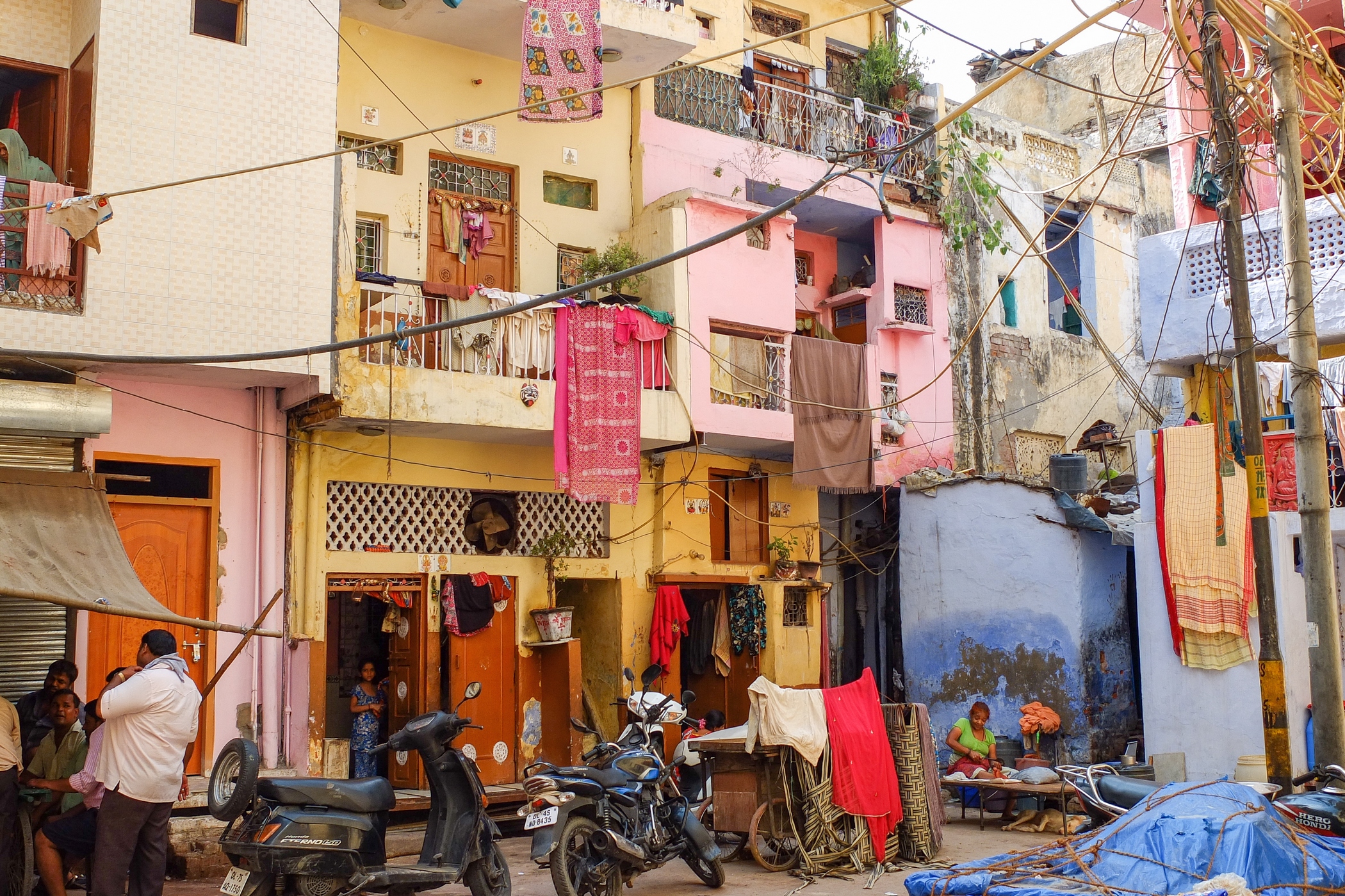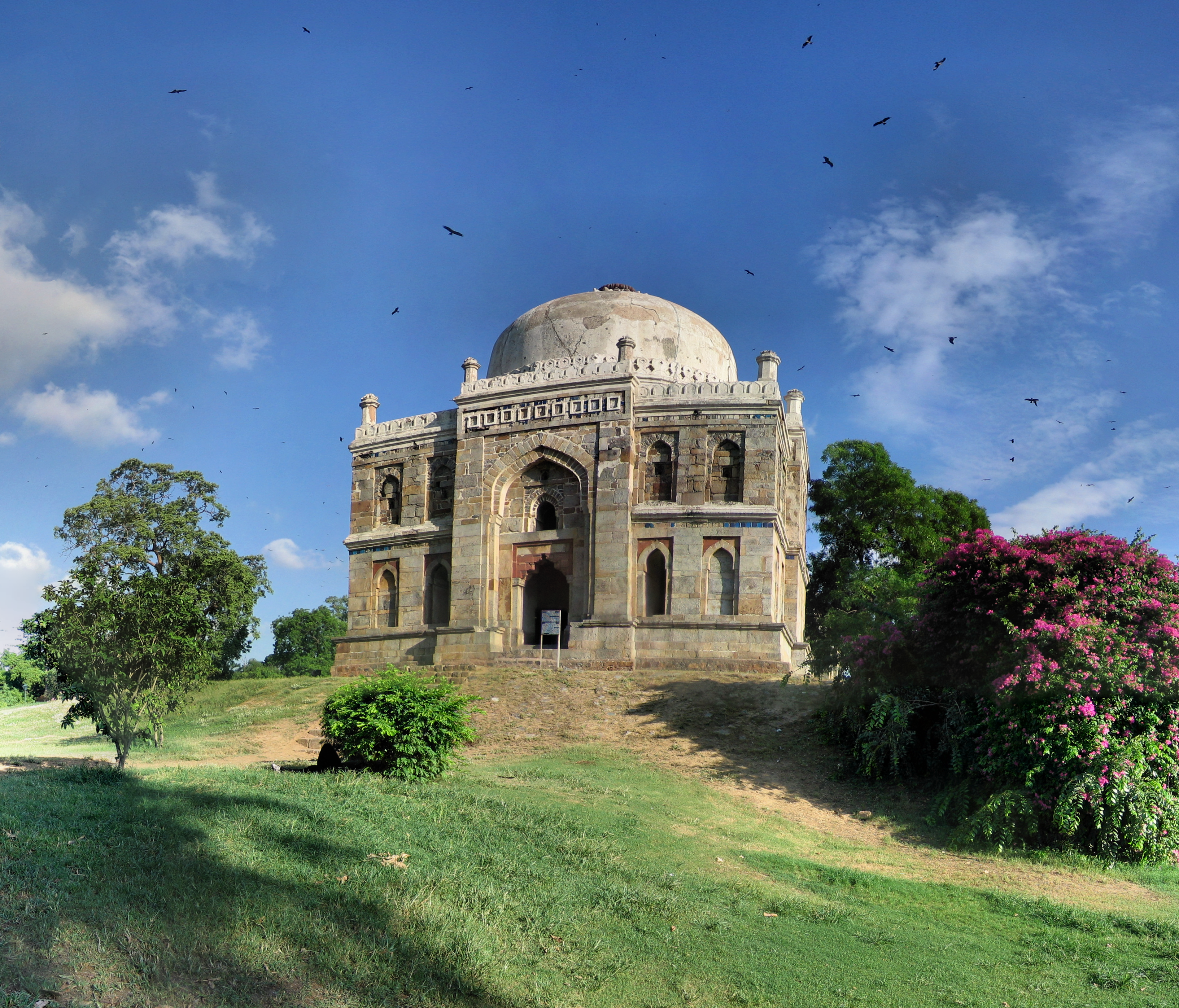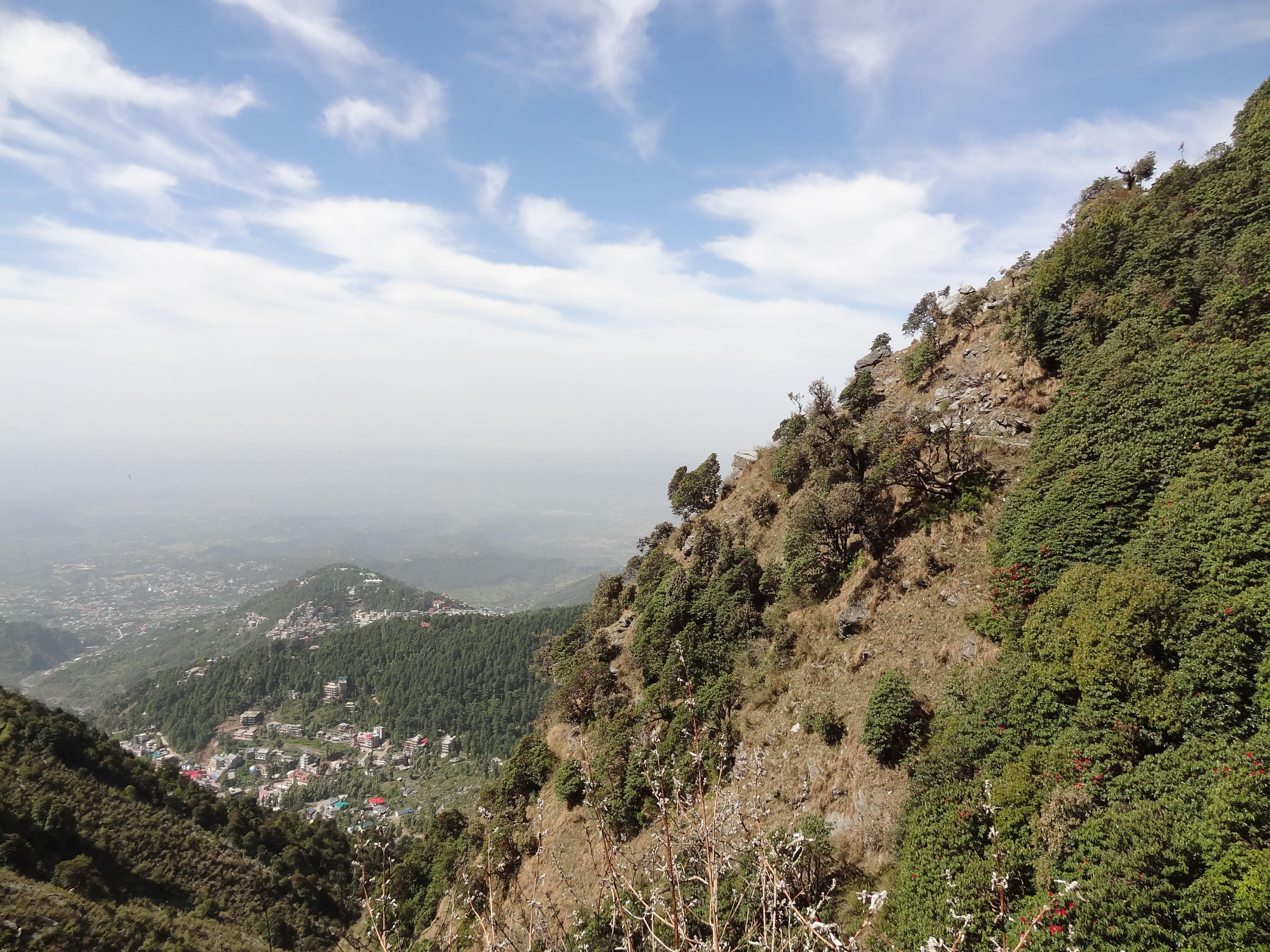Return to the search form Return to your search results
SIT India Traditional Medicine and Healthcare Practices
Fast Facts
Sessions Offered:
Summer
Location:
New Delhi, India
Credit:
Transfer
Eligibility:
2.5 GPA, good academic and disciplinary standing
Application Due:
Summer: 3/4
Program Cost:
Refer to the Application tab for more details

The SIT Experience
- Rigorous academic programs through a field-based, experiential approach
- Undergraduate research through an Independent Study Project
- Cultural immersion through fieldwork, language classes, and urban and rural homestays with local families
- A small group of students in each program, supported by SIT faculty and staff, homestay families, in-country experts, and community members
- Access to SIT's extensive local resources and networks
- A commitment to reciprocity as the foundation of our educational philosophy
Academic Program

Explore and experience India's vibrant traditional medicine systems in the context of rapid economic growth and health policy reform.
This program will introduce you to many of India’s healthcare systems. You will examine many of the social, economic, cultural, and legal paradigms that provide a context for healthcare service delivery in India. You will consider how policy and practice link together to either support or hinder specific health systems and how uneven access to modern healthcare may affect the sustainability of traditional systems.
Students who participate in this program take two courses:
- Traditional Indian Medicine: Theory and Context (seminar, 5 s.h.)
- Field Study of Traditional India Healthcare Practices (research methods and ethics course, 3 s.h.)
Credit earned on this program will be treated as transfer credit . For course descriptions and syllabi, please consult SIT's program webpage.
Cultural Activities
Please note that in order to take advantage of dynamic learning opportunities, program excursions may occasionally vary.

Site visits and excursions are an integral part of the program. You will spend time at hospitals, NGO headquarters, and academic and research institutes in New Delhi and other areas of North India.
Most program time is designed to help you build a foundation in traditional healthcare systems’ theory and practice and learn how marginalization affects the lives and health of India’s indigent populations. Excursion destinations may include rural and urban Nainital, Rishikesh, Palampur, and Dharamsala.
During excursions, you will interact with community members and traditional health practitioners. You will learn firsthand about ongoing struggles to survive and the challenges in acquiring adequate healthcare services in remote locations.
Program Dates
For program dates, please consult SIT's Program page.
For More Information
Steps to Studying Abroad
- Before initiating an application with SIT, students must complete a Discover Study Abroad session at the University of Iowa.
- After completing the Discover Abroad session, students will receive an email with their study abroad advisor assignment.
- Once assigned, students must meet with their study abroad advisor to receive program application instructions.
Study Abroad
1111 University Capitol Centre
Iowa City, IA 52242
Phone: 319-335-0353
Email: study-abroad@uiowa.edu
New Delhi

The program is based in New Delhi, India’s central hub for policymakers and organizations active in both health and human rights. Greater New Delhi is home to more than three hundred international and more than a thousand local NGOs actively involved in the health and development sector. The National Human Rights Commission, National Commission for Women, and other rights-focused organizations are headquartered in New Delhi. You will be encouraged to utilize the city’s many academic institutions and resources, including its excellent libraries, to advance your learning.
New Delhi has an extensive public transportation system, many parks and green spaces such as Lodhi gardens, sports facilities, and dozens of historical monuments and cultural associations. The city sees itself as both cosmopolitan and distinctively representative of its ancient roots.
India

India’s astounding quantity of religions, languages, and cultures is unique and unparalleled. The society of vast subcontinent, varied and complex in its rich heritage, is among the oldest in the world.
Culturally diverse and complex, with mainly rural, traditional, and agrarian population. India now is also a major industrial power experiencing rapid urban growth and rural-urban migration. It is a nation undergoing significant political, economic, and social change, while at the same time struggling to maintain many of its traditions and customs. India today is unfolding a story of a billion plus people, or more precisely, one sixth of the world’s population, on a big move as India's large and complex systems rapidly moving top-down and the country emerge as one of the fastest growing economies of the world.
US Department of State Country Information
The US Department of State provides safety and security information for every country of the world to help you assess for yourself the risks of travel. Each country information page contains a Travel Advisory, Alerts, and other important details specific to that country that could affect you.
Pay close attention to the entry and exit requirements, local laws and customs, health conditions, and other details to help decide whether traveling to any given country is right for you. Non-US citizen travelers may also wish to seek guidance from the embassy of their country of citizenship. The UI International Travel Policy for Students addresses restrictions on student travel to high-risk locations and engagement in high-risk activities abroad.
Living Arrangements
Nainital homestay

You will spend approximately 10 days of the program living with a carefully selected host family in rural Nainital, Uttarakhand. Typically, two or three students are placed with one family.
Most host families have lived in the same place for generations and, in some cases, for centuries. Host families are typically lower middle class but vary in size and caste background. A majority of host families have multiple generations living under one roof and are typically located in small villages.
In addition to being an excellent opportunity to practice language skills, the homestay also gives you the chance to intimately observe and participate in the culture and daily life of the local rural communities in the Himalaya. You may also experience special cultural activities, such as religious ceremonies and weddings, in addition to sharing many memorable meals.
Other accommodations
You will stay in an NGO guest house in Palampur, a guest house in Rishikesh and Dharamsala, and in a hotel in New Delhi during the orientation and concluding periods.
Passport
US Citizens
If you do not have a passport, it is important that you apply for one as soon as possible to ensure you receive it before the program begins. US citizens can find more information about how to apply for a passport on the US Department of State’s website.
Students with a valid passport should check the expiration date. Passports must be valid for at least 6 months AFTER the anticipated return to the US from studying abroad. If your passport is not valid for at least 6 months after your anticipated date of return to the US, you must renew your passport before applying for a visa or leaving the United States.US citizens can find more information about how to renew a passport on the US Department of State’s website.
Travel Arrangements
Airfare is not included in the program fee but students will work with SIT to determine the best time for arrival. Students will also receive support from SIT if they need to apply for a visa. More information on travel arrangements will be provided by SIT after the application cycle has concluded.
Eligibility
This program is open to UI students who fulfill the following requirements:
- Minimum 2.5 cumulative GPA: Students must have at minimum a 2.5 cumulative GPA to participate in this program.
- Good academic and disciplinary standing: Students must be in good academic and disciplinary standing at the University of Iowa. Academic and disciplinary history will also be considered when determining whether a student is prepared to represent the University of Iowa as part of this program. Students who, even after being accepted into a program, are put on either academic and/or disciplinary probation for any period of time overlapping with the study abroad program dates are ineligible to study abroad. In these cases, students must forfeit their acceptance, will not be allowed to study abroad, and are wholly responsible for any and all financial expenses incurred.
Costs
Costs charged to the U-Bill
- Application fee (charged at the time of application, before financial aid/scholarships disburse)
- Course Fee- Includes program course fee, tuition, housing, meals, pre-departure advising, airport pick-up for those on the group flight, orientation, and program-organized field trip and excursions. (charged shortly before departure)
- University of Iowa Study Abroad Administrative Fee (charged shortly before departure)
- The mandatory Iowa Regents CISI Health Insurance (charged shortly before departure)
Out-of-pocket costs (not charged to U-Bill)
- Round trip airfare (paid by student directly to travel agent or airline- approx. 6-8 weeks prior to departure, before financial aid/scholarships disburse)
- Passport (paid by student prior to departure, before financial aid/scholarships disburse)
- Consular and visa fees (paid by student prior to departure, before financial aid/scholarships disburse)
- Textbooks, copyright permission fees, course packets, and other course-related materials (paid upoon arrival to your host country)
- Medical exam/immunizations (paid by student as needed prior to departure, before financial aid/scholarships disburse)
- Personal expenses and personal travel (paid by student as needed while abroad)
- Rental or purchase of required cell phone- does not include usage fees (paid as needed while abroad)
Cost Sheet
The cost sheet outlines the total estimated costs associated with participating in this program and can be used for financial aid and planning purposes. They include fees charged on students’ U-Bill as well as out-of-pocket expenses. Actual out-of-pocket expenses will vary from individual to individual. Quoted estimates are conservatively high, yet realistic.
Scholarships & Financial Aid
Most financial aid (scholarships, grants, and loans) is applicable to study abroad programs. Please check the Study Abroad website for information on financial aid and how it may be applied to studying abroad. You are also encouraged to speak with someone at the Office of Student Financial Aid to explore financial aid options. Scholarship opportunities exist for study abroad participants. Please explore Study Abroad’s websites for UI Study Abroad Scholarship Opportunities.
SIT offers scholarships and grants that can be found on SIT's Scholarships & Grants web page.
SIT has a matching scholarship for Pell Grant Recipients. More information can be found on SIT Pell Grant Match Award web page.
How to Apply
- Before initiating an application with SIT, students must complete a Discover Study Abroad session at the University of Iowa.
- After completing the Discover Abroad session, students will receive an email with their study abroad advisor assignment.
- Once assigned, students must meet with their study abroad advisor to receive program application instructions.
Students will need to complete a University of Iowa Study Abroad application and a SIT Program Online Application. Information on these applications will come from the study abroad advisor. Final program admissions decision is made by SIT.
Application Deadline
Applications are due on February 24 for Fall.
Applications are due on September 24 for Spring.
Health & Safety Planning
Students are encouraged to review the following:
Iowa Regents CISI Health Insurance Information
Health preparation Guide for International Travel
This document is intended to help you plan for your medical needs abroad.
Please DO NOT turn this form in to UI Study Abroad.
Visa
U.S. Citizens will need a student visa to study abroad for a semester.
SIT provides Pre-Departure Documents to all program participants. One document is entitled Flight, Passport, & Visa Information. It is essential to read this document and understand what is required to obtain any necessary student visa and/or documents to participate in the program. Ultimately, it is your responsibility to secure any student visa or required documents to participate in the program.
Orientation
In order to prepare for your time abroad, you are required by the University of Iowa to complete two orientations. These may be in addition to orientations provided by your on-site provider. See below for more information.
Online Education Abroad Pre-Departure Orientation
You are required to complete the International Programs ICON course "Education Abroad Pre-Departure Orientation" prior to departure. This orientation is mandatory for all students going abroad under the auspices of the University of Iowa. It covers many practical matters about living overseas, such as health and safety, communication, money, goals, and much more. You will be enrolled in this course by International Programs and an email will be sent to you once enrolled. If you have any questions, you can email safety-abroad@uiowa.edu
Program-Specific Orientation
This orientation will be facilitated by a study abroad advisor and will cover content specific to the University of Iowa including but not limited to, billing, insurance, the Credit Approval Form (CAF), and transcripts. It could be conducted in a group setting or one-on-one depending on your type of planned activity abroad. Your study abroad advisor will send you more information about this mandatory in-person session.
SIT Pre-departure Resources
SIT will provide you with a variety of pre-departure resources to prepare you for your study abroad experience. These will include
- Flight, Passport & Visa Information
- Country Overview & Packing Guidelines
- Health Guidelines & Requirements
- Mental Health, Counseling & Wellness Tips
- Safety, Security & Health
- Recommended Readings & Resources
- SIT Study Abroad Student Handbook
